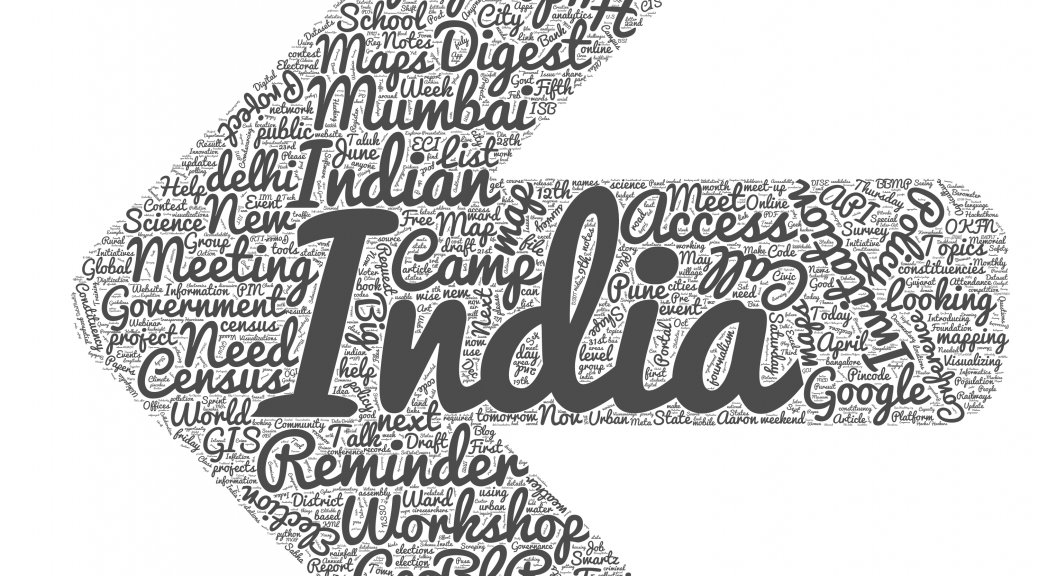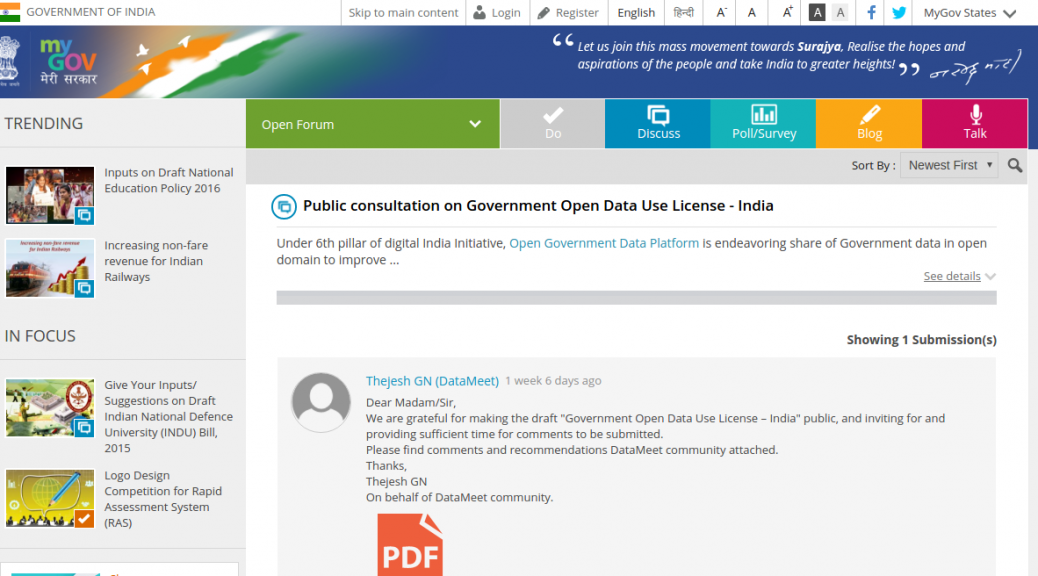Government of Telangana has launched four IT policies related to data on cybersecurity, data centers, data analytics and open data. Honorable IT Minister K T Rama Rao has announced the intention of separate sectoral policies through the launch of Telangana IT policy in the month of April’16. During the launch he stressed the importance of open data policy for the state. In his own words:
” Telangana will be among the pioneers in the country in coming up with this open data policy. The open data policy is the first step in opening up government data to a host of potential applications. The policy sets the necessary framework in place to operationalize the state open data portal. The policy has many enabling provisions in place for multiple stakeholders. Through this policy we hope to catalyze data and to make data driven decision making possible and development of important solutions for societal benefits. “
These policies were made after several consultations with industry, academia, civil society and various individual experts. Though the policies focus on individual sectors primarily, most of the elements are inter-linked with the common element of data. While the state government intends to foster its economy and business with the help of data, the open data policy focuses on enabling transparency and human development apart from economic development. Telangana, an IT rich state following open data practices will be a major boost for the ecosystem in India too.
We have been interacting with officials from Government of Telangana since December ’15, providing appropriate suggestions for the open data policy. Dileep Konatham, Director for Digital Media, Department of Information Technology was our esteemed panelist during discussions on Digital India at Open Data Camp Delhi ’15. Datameet will work with the Government of Telangana to help implement the policy with necessary suggestions for guidelines and community building over the coming months.
Links to the policies launched:

